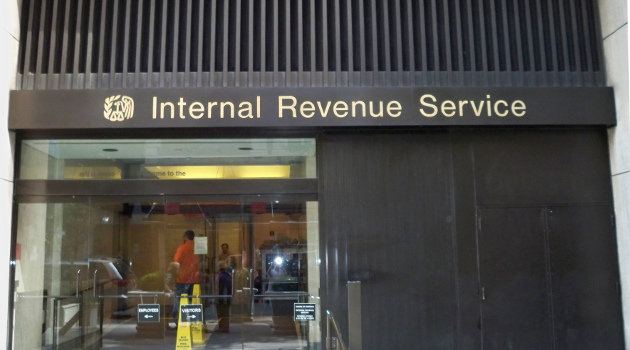This article originally appeared on The Blaze on December 28, 2015.
The massive omnibus spending package passed by Congress included new limits on the IRS, in particular on the agency’s ability to harass political non-profits. Congress is not done, however, as an ongoing dispute between the tax collection agency and Microsoft demonstrates that the IRS continues to operate outside the bounds of the law.
The IRS is in the midst of an almost nine-year audit of Microsoft. That’s unusual given the three-year statutory limit for audits. Sometimes they can be extended when necessary, but the IRS has asked and been granted permission by Microsoft to do so eight times already. Most notable, however, is the fact that Microsoft just wants to pay its bill and move on, but the IRS has refused to submit one. That might be due to the fact that the never-ending audit is proving quite profitable for a powerful, politically-connected law firm.
Again acting outside normal procedure, the IRS brought in lawyers from Quinn Emanuel Urquhart & Sullivan, a major contributor to Barack Obama and the Democrat Party. This despite the fact that the IRS already employs a veritable army of lawyers and accountants with more relevant expertise.
The use of outside lawyers raises serious concerns regarding taxpayer privacy and potential conflicts of interest. Namely, that a $1,000-per-hour firm is going to be less motivated to resolve a case quickly and efficiently than the taxpayers footing their bill.
The $2.2 million contract for Quinn Emanuel also comes at a time when the IRS is claiming poverty and a lack of sufficient funds for assisting taxpayers.
Despite its reputation, IRS audits are designed not to be confrontational, but cooperative. Yet the agency’s provocative decisions have mired the Microsoft audit in a wasteful quagmire with no clear end in sight. At a time when IRS overreach and its implications for taxpayer privacy have become major political issues, the case deserves serious Congressional scrutiny.
The issue involves Microsoft’s sale of products from its American office to overseas subsidiaries, implicating transfer pricing rules. While complicated, such situations are hardly unusual, and the IRS ought to be more than capable of divining a proper bill within its normal three year window, much less the almost nine it has had thus far.
The courts have unfortunately failed to provide adequate restrictions on the IRS. While a district judge acknowledged being troubled by the use of an outside firm in the Microsoft case, he failed to stop the IRS despite its extralegal use of private contracts. It is up to Congress now to make clear that the IRS cannot simply enlist outside lawyers as deputy tax collectors.
Given the sensitive nature of the information handled by the IRS and the obvious potential for abuse, Congress has for good reason intentionally restricted the performance of audits to government personal and given them strict limitations. The IRS alone needs to do the job it has been tasked to do, and to do so within the rules.
Taxpayers also should not be kept in perpetual limbo by the IRS regarding their tax bills. It is well passed time for the IRS to finish its audit of Microsoft and finally send the company a bill. Then it is up to Congress to ensure other taxpayers are protected from similarly misguided efforts in the future.
———
Image credit: Matthew G. Bisanz | CC BY-SA 3.0.

